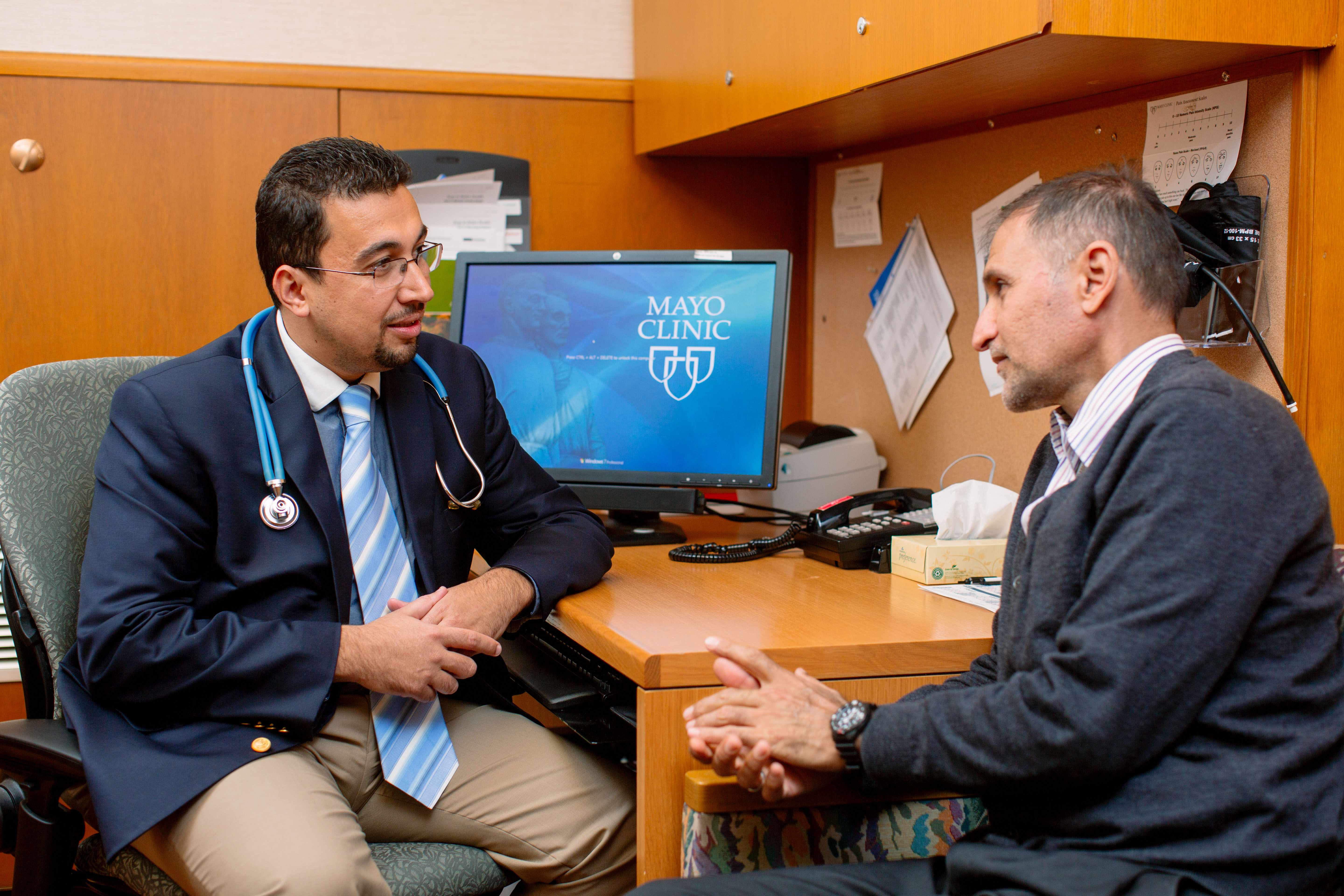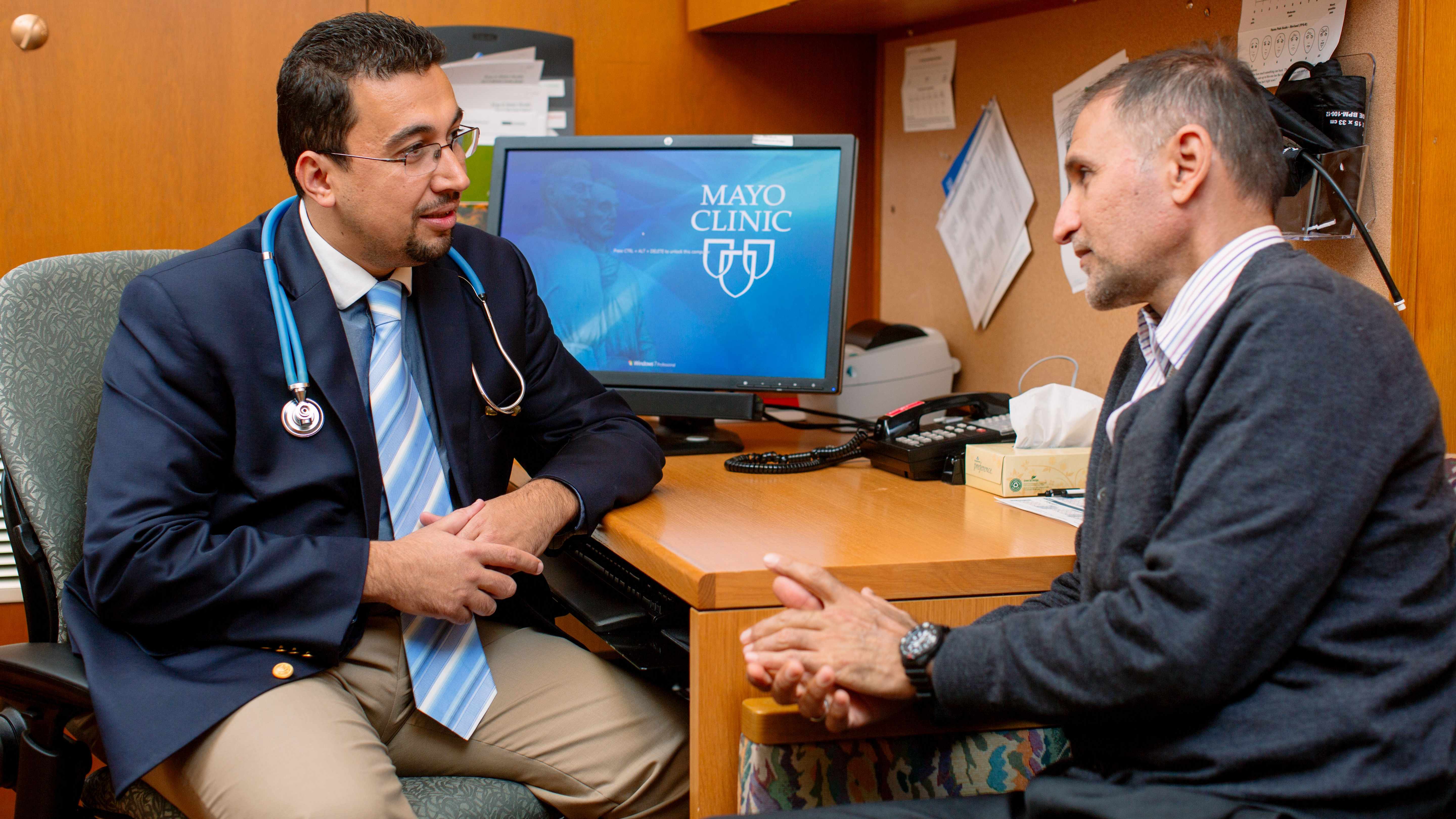-
 Clinical Trials
Clinical TrialsEarly results from clinical trials not all they’re cracked up to be, shows new research
 ROCHESTER, Minn. — When people are suffering from a chronic medical condition, they may place their hope on treatments in clinical trials that show early positive results. However, these results may be grossly exaggerated in more than 1 in 3 early clinical trials, reports a new study led by Mayo Clinic and published today in Mayo Clinic Proceedings.
ROCHESTER, Minn. — When people are suffering from a chronic medical condition, they may place their hope on treatments in clinical trials that show early positive results. However, these results may be grossly exaggerated in more than 1 in 3 early clinical trials, reports a new study led by Mayo Clinic and published today in Mayo Clinic Proceedings.
“This phenomenon of exaggerated early results was present in a whopping 37 percent of the studies we reviewed,” says Fares Alahdab, M.D., lead author of the study and a research fellow in Mayo Clinic’s Evidence-Based Practice Center. “Physicians and patients should be cautious about new or early clinical trial evidence. Exaggerated results could lead to false hope as well as possibly harmful effects.”
Dr. Alahdab and the team of researchers led by the center’s director, M. Hassan Murad, M.D., reviewed thousands of research articles from the top 10 general medical journals using impact factors. (Impact factors are an internationally accepted ranking system for scientific journals). They collected 70 meta-analysis articles published during an 8½-year period (Jan. 1, 2007, to June 23, 2015) that included the results of 930 clinical trials.
They discovered that the first or second studies (in terms of publication year) reported an effect that was 2.67 times larger than what eventually was shown when subsequent trials were published. The team focused its research on clinical trials evaluating drugs or devices for use in treating chronic conditions ─ those conditions that generally persist over time, including cancer, stroke, heart disease, diabetes and kidney disease.
“Often, patients are living with more than one chronic condition, and they and their doctors watch for research about new treatments,” says Dr. Murad. “They need to be aware that the effect seen in earlier trials may not bear out over time and may be much more modest.”
“Some people may think this is an anti-innovation message,” Dr. Murad says. “To the contrary, we welcome new treatments. We just want people to know that the benefit seen in real practice, when treatments are given to people with various comorbidities and in different settings, may be smaller than what was seen in the earliest clinical trials.”
When publishing early clinical trial results, the research team also hopes their research colleagues will consider the possibility of the Proteus effect ─ a name often given to the phenomenon of early exaggeration followed by moderation over time. The research team hopes their colleagues will temper their language to avoid providing false optimism.
This research is part of the knowledge synthesis work within the Mayo Clinic Robert D. and Patricia E. Kern Center for the Science of Health Care Delivery. Dr. Murad, who also serves as a preventive medicine physician at Mayo Clinic, leads the Knowledge Synthesis Program. His group conducts systematic reviews, such as this study, where they collect, appraise and summarize the available evidence on a topic. These evidence summaries help patients, physicians, guideline developers, and other stakeholders make decisions consistent with the best available evidence.
###
About Mayo Clinic Robert D. and Patricia E. Kern Center for the Science of Health Care Delivery
The Mayo Clinic Robert D. and Patricia E. Kern Center for the Science of Health Care Delivery seeks to discover new ways to improve health; translate those discoveries into evidence-based, actionable treatments, processes and procedures; and apply this new knowledge to improve care for patients everywhere. Learn more about the center.
About Mayo Clinic
Mayo Clinic is a nonprofit organization committed to clinical practice, education and research, providing expert, comprehensive care to everyone who needs healing. Learn more about Mayo Clinic. Visit the Mayo Clinic News Network.
Media contact:
- Elizabeth Zimmermann Young, Mayo Clinic Public Affairs, 507-284 5005, newsbureau@mayo.edu







